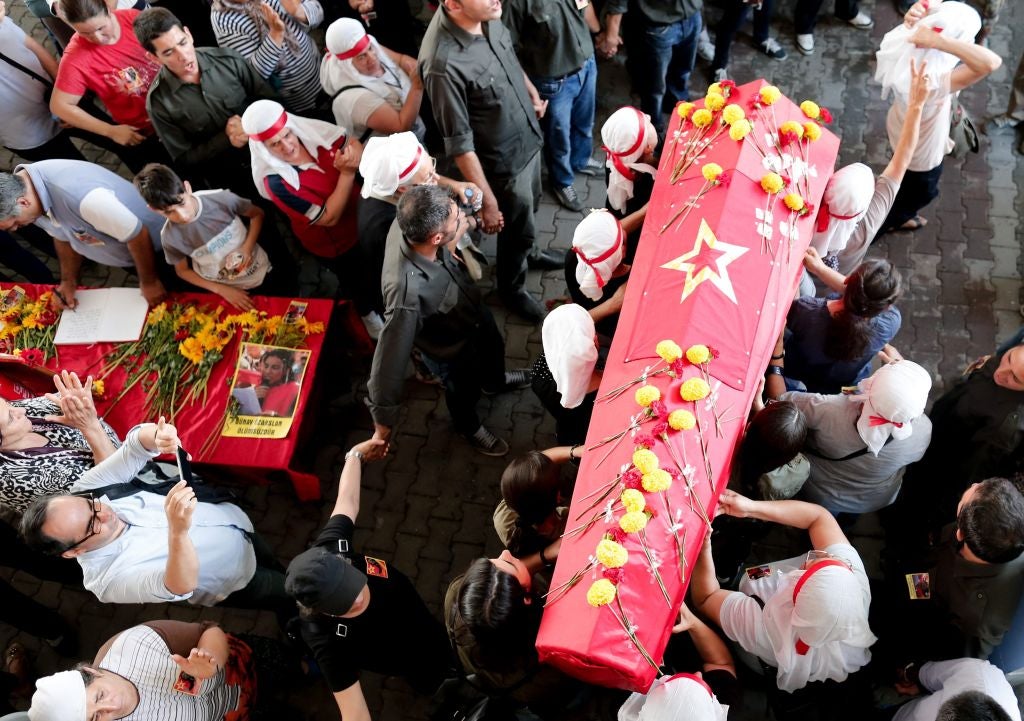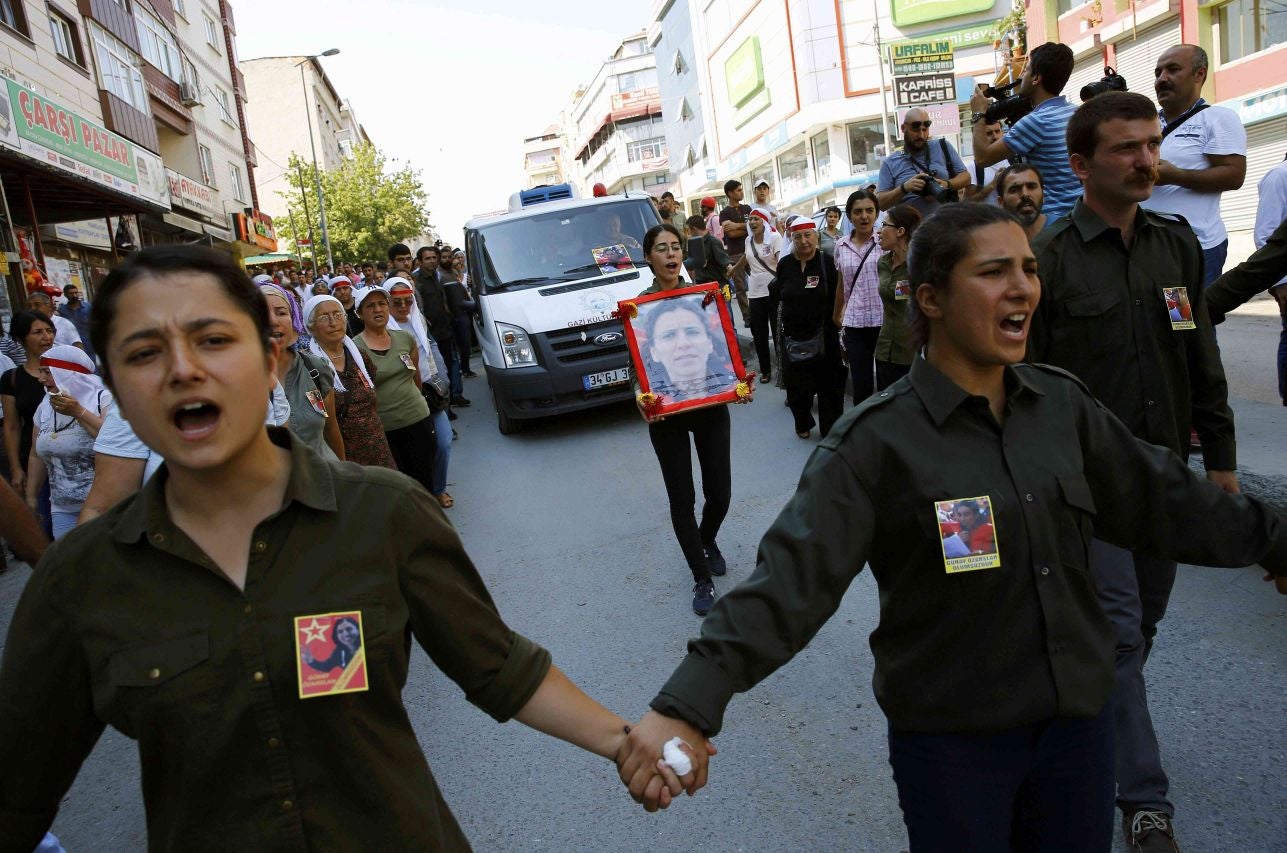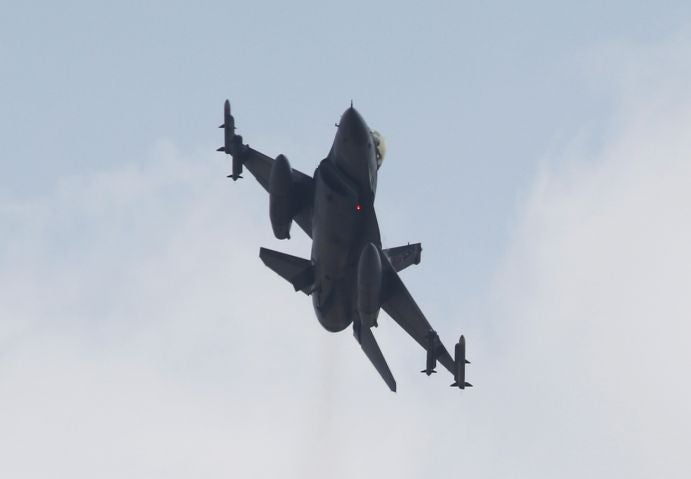America and Turkey to create Syria buffer-zone as tensions rise over strikes against Kurds
Joint military campaign will be discussed at an emergency Nato meeting

The US and Turkey have agreed to carry out a military campaign to create a buffer-zone inside northern Syria – the first move by foreign powers to seize territory in the country since the start of the civil war four years ago.
Amid rising tension following the launch of air strikes by Ankara against Kurdish fighters as well as Isis, and warnings of a civil war breaking out in Turkey, the campaign will be discussed at an emergency Nato meeting on Tuesday in Brussels.
However, rifts have already begun to emerge between America and Turkey over the mission to drive out Isis and carve out an area of up to 65 miles from east of Aleppo to the Euphrates river.
Recep Tayyip Erdogan’s Government has long wanted a no-fly zone across its long and often porous frontier with Syria, but Washington has insisted on a “safety zone” instead. As the name suggests, a no-fly zone would raise the possibility of being forced to shoot down the jets of the Syrian regime, potentially dragging Washington into a conflict on two fronts while still fighting the jihadists of Isis.
There is also concern in the West about Turkey’s continuing ground and air attacks against the Kurds. American and European governments have urged Ankara to show restraint and this message will be reinforced at the Nato meeting. Appeals will be made to the Turks and the Kurds to renew their fragile ceasefire.

Over the weekend, the German Chancellor Angela Merkel telephoned the Turkish Prime minister Ahmet Davutoglu to give assurance of Germany’s “solidarity and support in the fight against terrorism” , but she also appealed to him “not to give up the peace process with the Kurds despite all the difficulties”.
The Nato Secretary-General Jens Stoltenberg stressed that member states must offer “solidarity and support” to Turkey, which has requested the Nato consultation meeting, but also warned that military action by both the Kurds and Turks risks “jeopardising” the ceasefire. Both side must negotiate, he said.
The Turkish Government’s public position is that Isis as well as both the Kurdish PKK and, in Syria, the Kurdish People’s Protection Units (YPG) are “terrorists” and will be dealt with accordingly. There have been increasing claims from Ankara that the Kurdish ambitions to create an independent homeland, part of it from Turkish territory, are being rekindled.
The Turkish Foreign Minister Mevlut Cavusoglu said: “There is no difference between PKK and Daesh [Isis]. You can’t say that PKK is better because it is fighting Daesh. The PKK is fighting ... for power, not for peace, not for security ... We expect solidarity and support from our Nato allies.”

Senior diplomatic sources said, however, that the Turks had privately reassured the Americans that the offensive against the PKK and the YPG militia was a tactical move to ensure it does not move into the “safety zone” in Syria once Isis has been driven out. The Kurds, the sources said, already control around 560 miles of the border between Syria and Turkey.
But the YPG is regarded by the West as the most combative of the groups fighting Isis. Retaliation by the Kurds against Turks – of the kind that saw two members of the security forces killed in recent days – could, it is feared, start a slide into violence that destabilises the region.
There are further concerns over security. Both the Americans and the Turks have stressed that they would not put troops into the “safety zone”. The Western-backed Free Syrian Army remains relatively powerless and a Pentagon scheme to train fighters has yielded only around 50 so far. Another American plan, to create a “Sunni awakening” using tribal fighters, modelled on a force in Iraq during US occupation, is still at an embryonic stage.
Western officials are apprehensive that a security vacuum might be filled by the al-Qaeda linked Jabhat al-Nusra. The Turks are said to favour the Islamic Front, an alliance of Islamist groups fighting the regime of Bashar al-Assad. However, its main component, Ahrar al-Sham, has co-operated with al-Nusra and, until two years ago, Isis.
Meanwhile planning for the mission continues, with the aim of delivering symbolic, as well as strategic, blows to Isis. The area to be wrested from them, according to one option, would include Dabiq, north of Aleppo, a town where some of the movement’s ideology was formulated and after which its propaganda magazine is named; Manbij, one of the first cities to fall to the extremists; and al-Bab, which had successively fought first the regime, then al-Nusra and Isis, at great cost to its residents.
Abdulrahman, an activist from al-Bab, now in exile in Turkey, said: “We have suffered from both Assad and the terrorists of Isis. The Kurds have helped us in these really bad times. We don’t want them to suffer now.”
Join our commenting forum
Join thought-provoking conversations, follow other Independent readers and see their replies
Comments
Bookmark popover
Removed from bookmarks